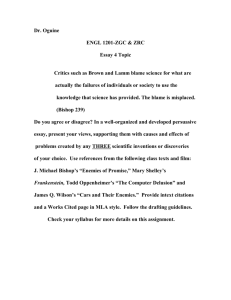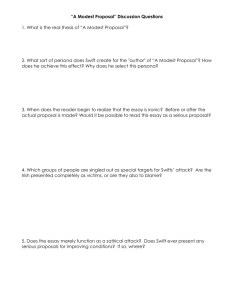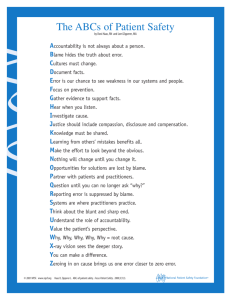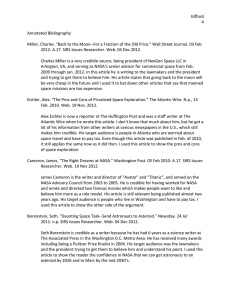PH307 - Disasters Essay 1
advertisement
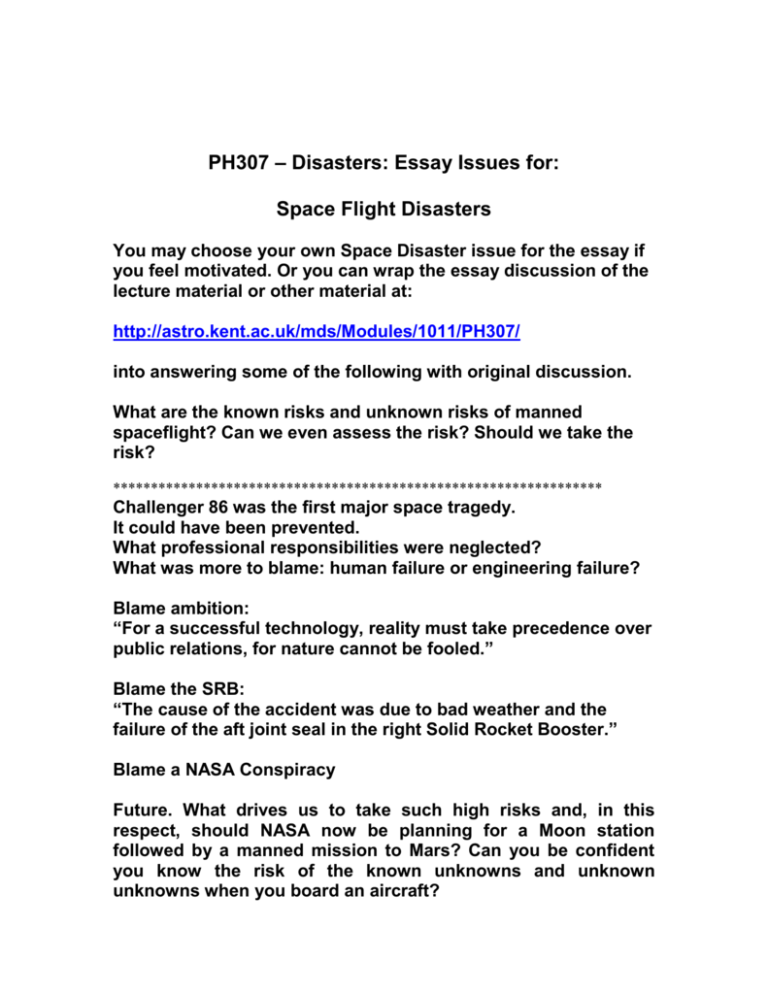
PH307 – Disasters: Essay Issues for: Space Flight Disasters You may choose your own Space Disaster issue for the essay if you feel motivated. Or you can wrap the essay discussion of the lecture material or other material at: http://astro.kent.ac.uk/mds/Modules/1011/PH307/ into answering some of the following with original discussion. What are the known risks and unknown risks of manned spaceflight? Can we even assess the risk? Should we take the risk? ***************************************************************** Challenger 86 was the first major space tragedy. It could have been prevented. What professional responsibilities were neglected? What was more to blame: human failure or engineering failure? Blame ambition: “For a successful technology, reality must take precedence over public relations, for nature cannot be fooled.” Blame the SRB: “The cause of the accident was due to bad weather and the failure of the aft joint seal in the right Solid Rocket Booster.” Blame a NASA Conspiracy Future. What drives us to take such high risks and, in this respect, should NASA now be planning for a Moon station followed by a manned mission to Mars? Can you be confident you know the risk of the known unknowns and unknown unknowns when you board an aircraft? Would you volunteer to be the first human on Mars? At what risk? What is the personal sacrifice? The prestige? The financial gain if you return? The personal achievement? Should we continue with exploring space? Should we continue with manned missions? How much should we spend on these activities? Should we (prepare to) evacuate the Earth? In case of emergency, where is the EXIT? What emergencies could occur? How can we prevent, mitigate, if we can? Material: Feynman’s findings on the Challenger ‘86. The Columbia report 2008 The Space Race & The Space Age Previous space flight tragedies
